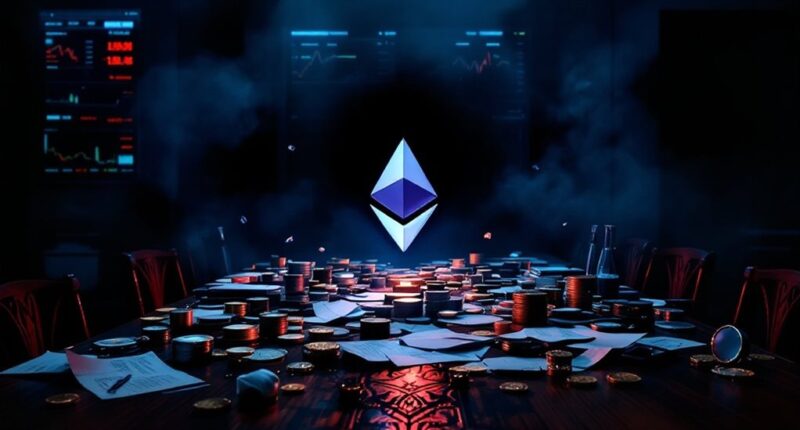How much does it cost to buy an election? In the case of Arbitrum’s recent governance scandal, apparently just 5 ETH (about $10,000). A user identified as “hitmonlee.eth” spent this sum to acquire voting power from 19.3 million ARB tokens via a platform called LobbyFi, fundamentally purchasing enough influence to help elect CupOJoseph to Arbitrum’s Oversight and Transparency Committee—a position worth roughly $100,000 annually.
This incident has sent shockwaves through the crypto community, as the purchased votes exceeded the delegated weight of respected participants like Wintermute and L2Beat. Imagine showing up to a town hall meeting where one person bought 50,000 megaphones—that’s fundamentally what happened here, but with blockchain receipts to prove it.
LobbyFi operates as a marketplace where token holders can auction their governance power for passive income. This behavior directly undermines the progressive decentralization intended in Arbitrum’s governance model. Think of it as renting out your voting rights instead of selling your tokens—you keep the asset but temporarily hand over its decision-making power. Some votes went for as little as 0.0652 ETH ($150) for 20.1 million ARB tokens’ worth of influence.
The economics are troublingly simple: when the cost to manipulate governance is dwarfed by the potential rewards, rational actors will exploit the system. It’s like finding a vending machine that dispenses $20 bills for nickels—someone will inevitably empty it. This exploitation pattern mirrors recent DeFi security breaches where attackers gained admin privileges to control entire platforms, demonstrating how vulnerabilities in governance can be as damaging as technical flaws. The incident highlights the smart contracts vulnerabilities that many DAOs face despite their promise of transparent, community-led governance.
The Arbitrum Foundation has responded by opening forums to discuss potential solutions rather than imposing unilateral bans. Community suggestions include disqualifying purchased votes, implementing penalties, and restructuring governance models.
This scandal follows similar controversies, like Compound DAO’s 2024 vote manipulation, highlighting a recurring vulnerability in token-weighted governance systems.
As DAOs continue evolving, they face a critical question: can truly decentralized governance survive when votes become just another commodity to be bought and sold? The answer may determine whether DAOs represent a revolutionary form of organization or simply replicate traditional power structures with blockchain window dressing.






